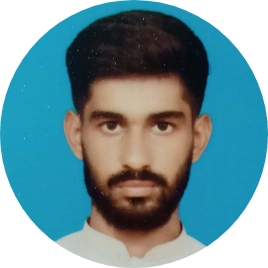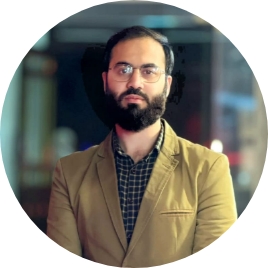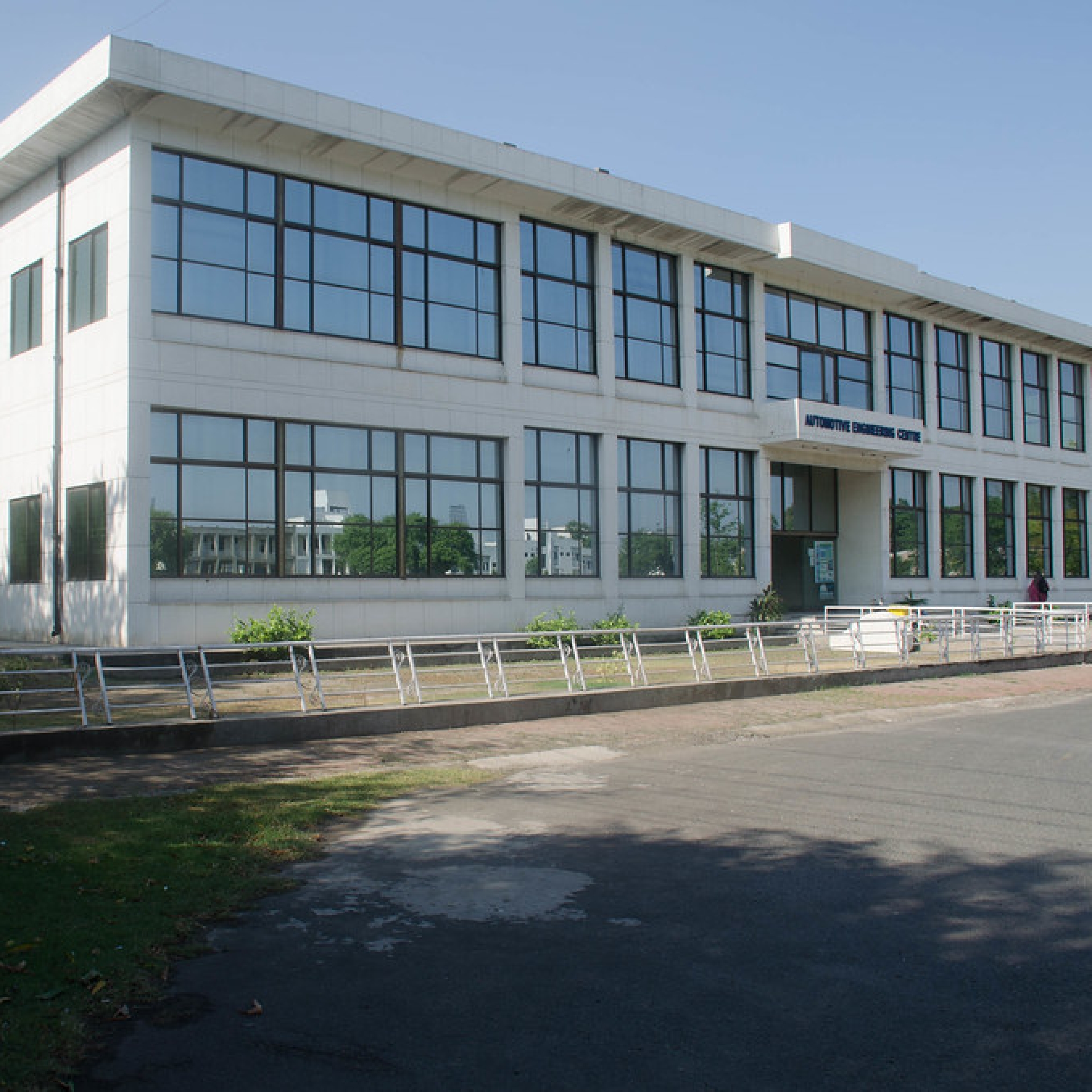
Automotive Engineering Center
Automotive industry has been flourishing in Pakistan since the last decade. With the increase in purchasing power and enhancement of quality of life of middle class the production of cars has been increasing and new companies have also initiated production. Automotive industry has become an essential part of modern lifestyle because of the wider use of cars, buses, motorcycles, trucks, tractors, and other agricultural machinery. The automotive industry is a pillar of the national economy, a main driver of macroeconomic growth and technological advancement, spanning many adjacent industries.The Automotive Engineering Centre was initiated in 2005 to contribute to the automotive engineering field through research and innovation. A wide variety of Research, Development & Consultancy facilities such as engine performance testing, emission testing, automotive noise level measurement etc., are available at the Centre to support educational and industrial requirements. The B.Sc. Automotive Engineering program has been accredited by Pakistan Engineering Council (PEC), under Washington Accord (WA), on Level II Outcome Based Education (OBE) system. For more details, you can visit the official website at: https://aec.uet.edu.pk
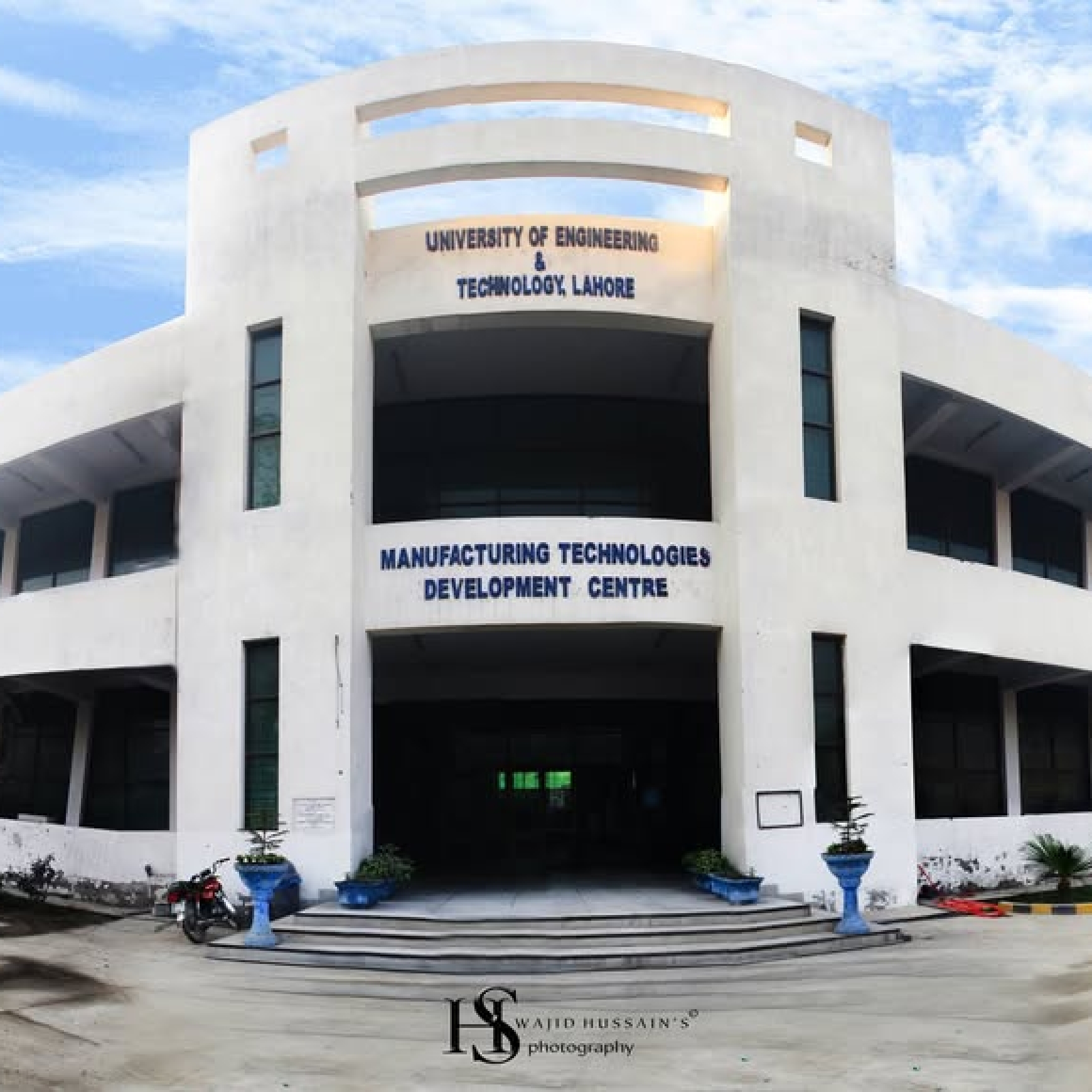
DEPARTMENT OF INDUSTRIAL & MANUFACTURING ENGINEERING
In a global marketplace, creating and maintaining competitive advantage is the key to success. Today's industry leaders must satisfy customers' expectations for high quality products while dealing with the realities of soaring energy prices and increasing international competition. Cross-functional engineers, equipped with: a solid technical background, comprehension of new equipment and process technologies, a firm grasp of business matters and aspects of manufacturing policy, strong understanding of productivity improvement techniques and readiness to lead diverse teams, are the future of world-class manufacturing. Today, almost all major manufacturing and services industries train their newly inducted engineers for the aforementioned traits. Department of Industrial and Manufacturing Engineering, however, has designed its curricula to give its graduates a head start in this respect by including courses like Manufacturing Processes, Industrial Materials, Engineering Economics, Communication Skills, Project Management, Optimization Techniques, Production & Operations Management, Total Quality Management, Entrepreneurship, Social & Ethical Aspects in Engineering, Finite Element Analysis, Maintenance Engineering & Management and Production Tooling Design to name a few.
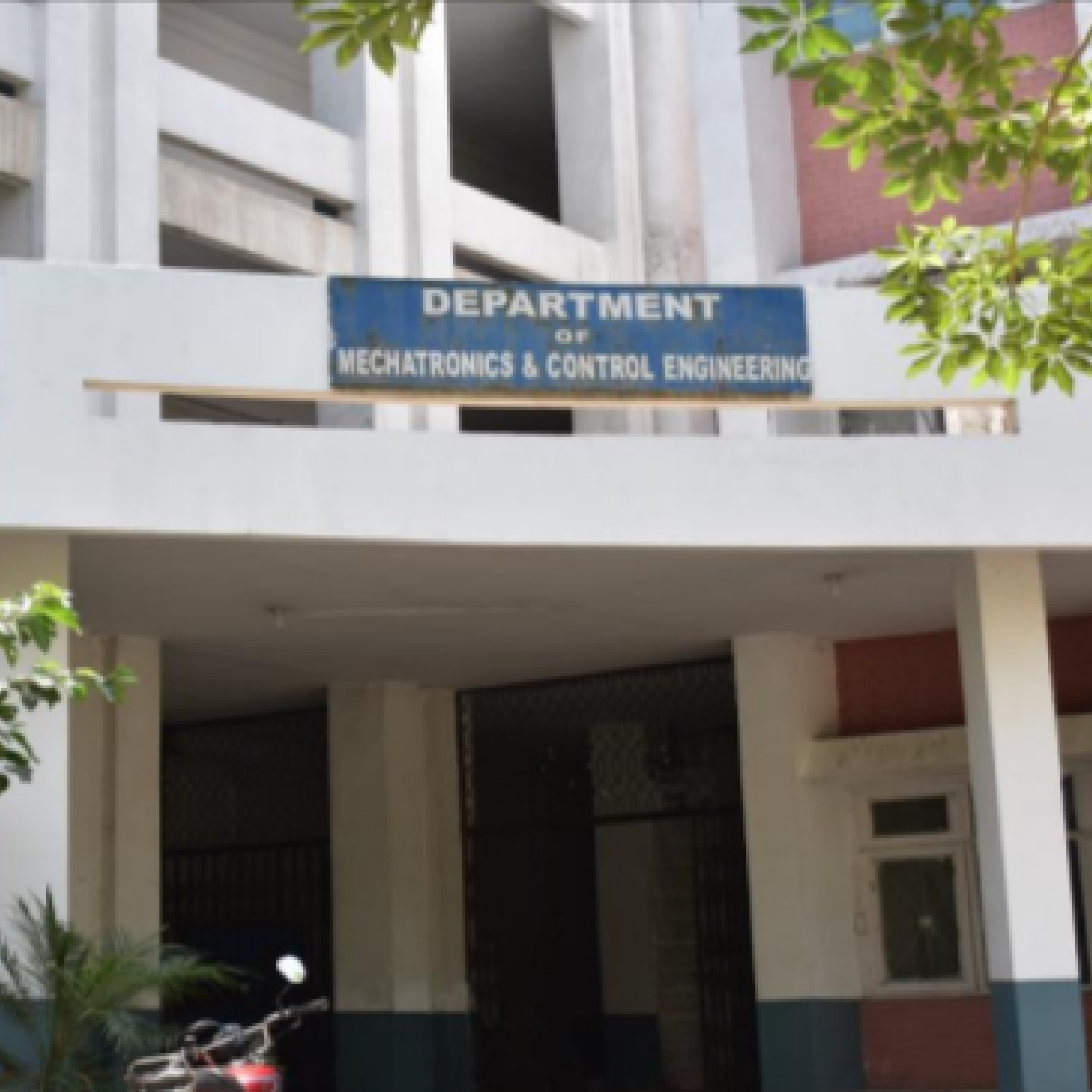
DEPARTMENT OF MECHATRONICS & CONTROL ENGINEERING
This program is accredited by Pakistan Engineering Council (PEC) under Washington Accord (W.A). Mechatronics is the synergistic combination of mechanical engineering, electronics, control engineering and computer science. It is essential in the design of intelligent products; it allows engineers to transform their concepts into reality. Currently, the use of intelligent products with improved flexibility, performance, reliability and maintainability is crucial for the economic vitality of any country. Thus, mechatronics engineering carries the potential to make major impacts upon various industries such as automotive, consumer electronics, biomedical and robotics/automation. At the same time, mechatronics is becoming popular at universities from the viewpoint of research as well. Research areas, relevant to mechatronics, are diverse and include robotics, actorics/sensorics, Micro Electro Mechanical Systems (MEMS), mechatronic devices/machines, control of mechatronic systems, human-machine- interface/haptics, embedded computing and software engineering as well as design/integration methodologies for mechatronic systems.
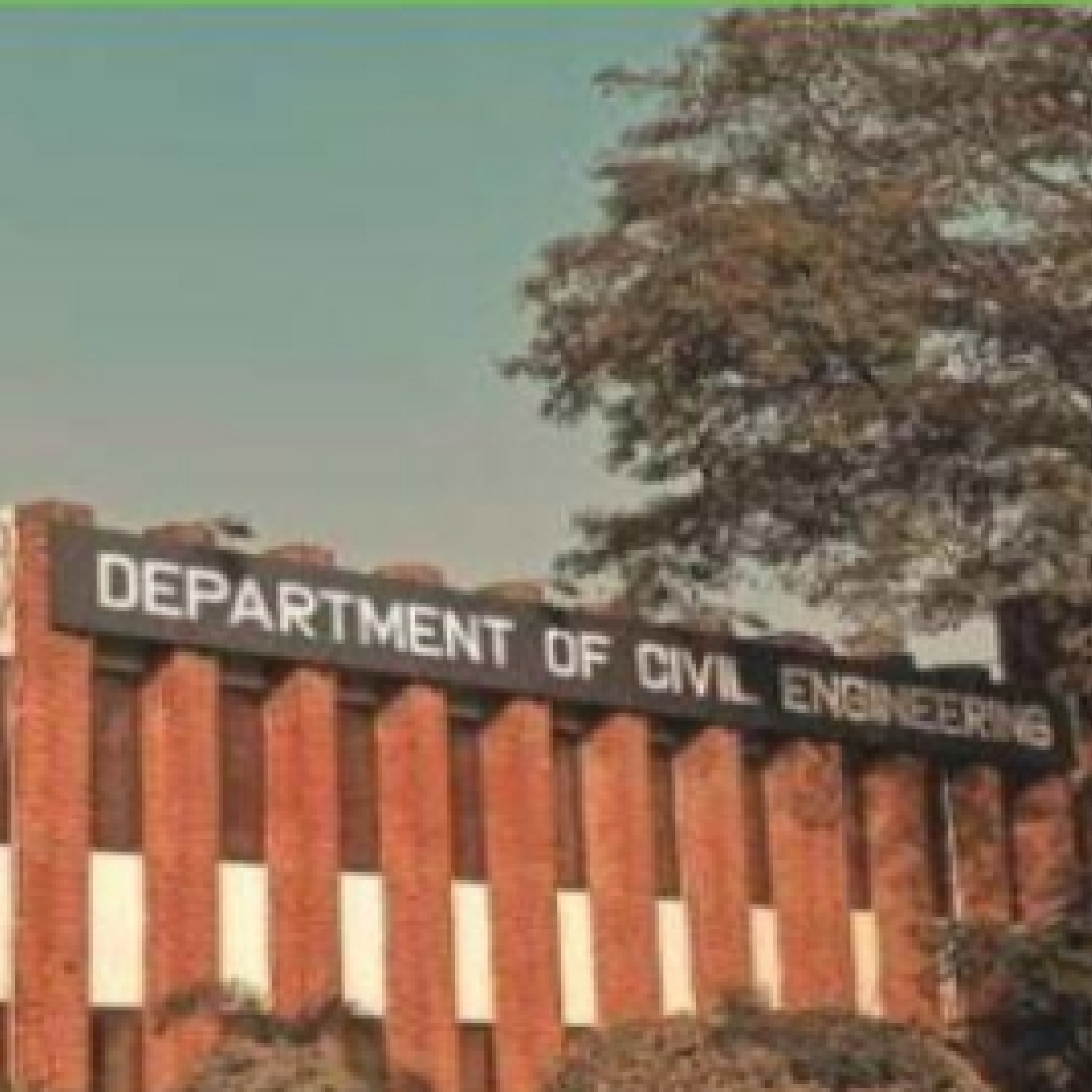
DEPARTMENT OF CIVIL ENGINEERING
Civil Engineering Department is one of the oldest department in the country imparting Civil Engineering courses at undergraduate and postgraduate levels. The Department was established in 1939 as a part of the Maclagan Engineering College, Lahore. Currently it has an enrolment of over 1000 students in bachelor, Master and Ph.D. levels. The department has one of the largest number of Ph.D. qualified faculty. Since 2014 the department adopted Outcome Based Education system and got accredited with Washington Accord. Henceforth, the graduates are considered recognized in 21 signatory countries. Civil engineering graduate of UET Lahore has sufficient opportunities of getting jobs in various government/private departments i.e. Communication & Works (C & W), Water and Power Development Authority (WAPDA), Punjab Irrigation and Power Engineering Department, Civil Aviation Authority, Pakistan Railways, National Highway Authority (NHA), Lahore Development Authority (LDA), Water and Sanitation Agency (WASA), Public Health Engineering Department, National Engineering Services Pakistan (NESPAK), Associated Consultant Engineers (ACE), National Development Consultants (NDC), SKB Engineering & Construction, Descon Engineering Limited and many more.
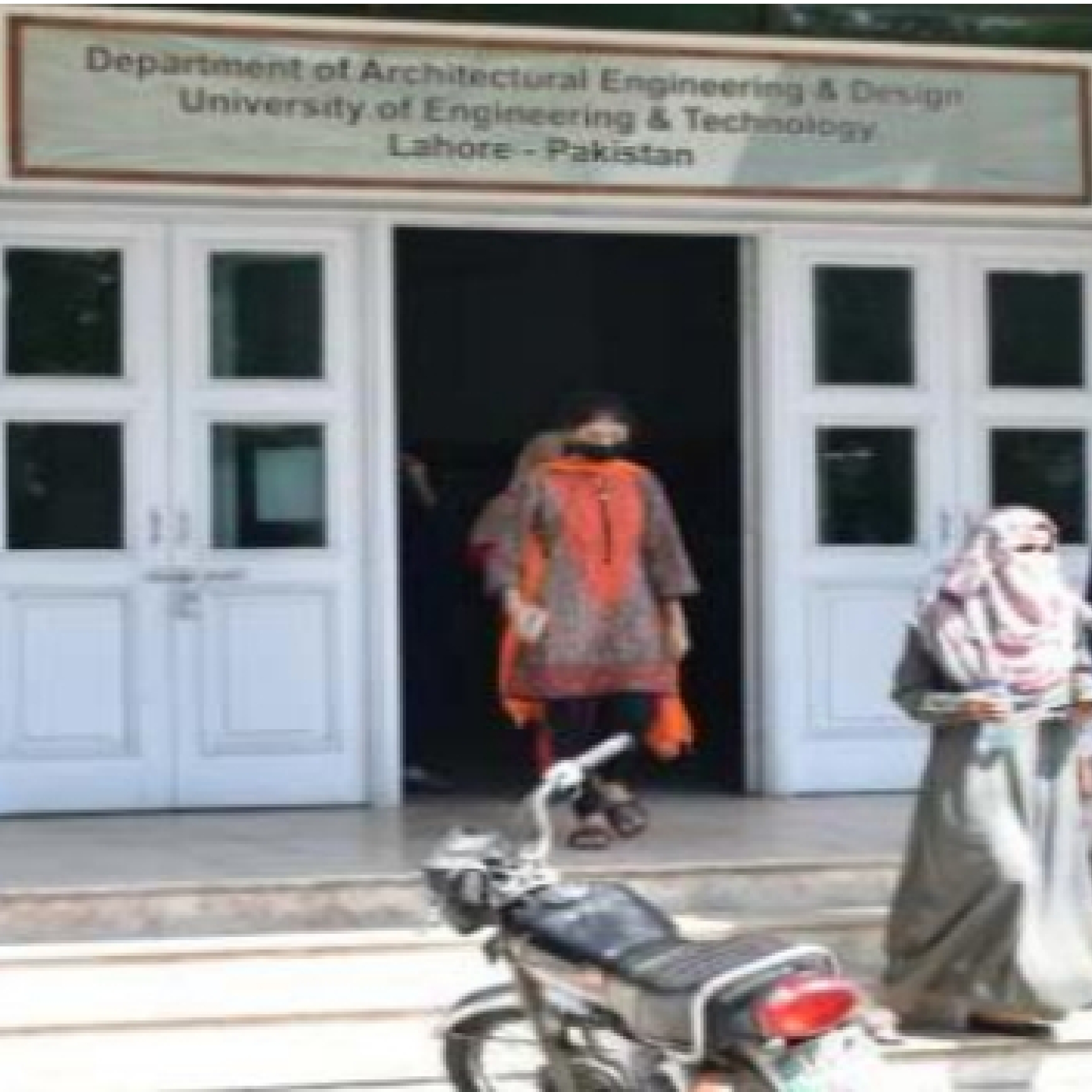
DEPARTMENT OF ARCHITECTURAL ENGINEERING & DESIGN
The Department of Architectural Engineering and Design was established first time in Pakistan at University of Engineering and Technology Lahore in the year 2001. The department is offering 4-years B.Sc. Architectural Engineering, M.Sc. Building Engineering, M.Sc. Integrated Building Design, M.Sc. Construction Management and Ph.D. in Architectural Engineering. The Architectural Engineering program is a blend of Architecture and Engineering, the emphasis of this Program is to give quality education to the students and prepare them for the building industry of Pakistan as successful professionals with innovative and multi disciplinary approach. The department has enrolment of average 50 students per batch in undergraduate program. The Graduates of Architectural Engineering program are working in various national/international organizations and enjoying good repute. The demand of Architectural Engineers has increased rapidly during last few years resulting 100% absorption of graduates in private and public-sector organizations and upgradation of admission merit. Presently the merit position of the Architectural Engineering program is at 5 th out of nineteen undergraduate programs at UET Lahore. An Architectural Engineer having background of multidisciplinary knowledge on various areas of buildings has a greater opportunity to work according to his/her aptitude. The most prominent areas of curriculum include Building Structures, HVAC system of Buildings, Electrical System of Buildings (Lighting and Illumination), Water Supply and Sanitation System for Buildings, Building Construction, Energy Efficient Buildings, Integrated Building Design, Green Buildings, Project Management, Fire Safety, Acoustics of Buildings, Materials of Construction, and Conservation of Historical Buildings. Students have choice to select the field of their interest by studying elective course in 8th semester and final year project in the same area. This conforms to the offering of specialized field in Architectural Engineering Program at various international universities. The department has adopted Outcome Based Education (OBE) system since 2015.
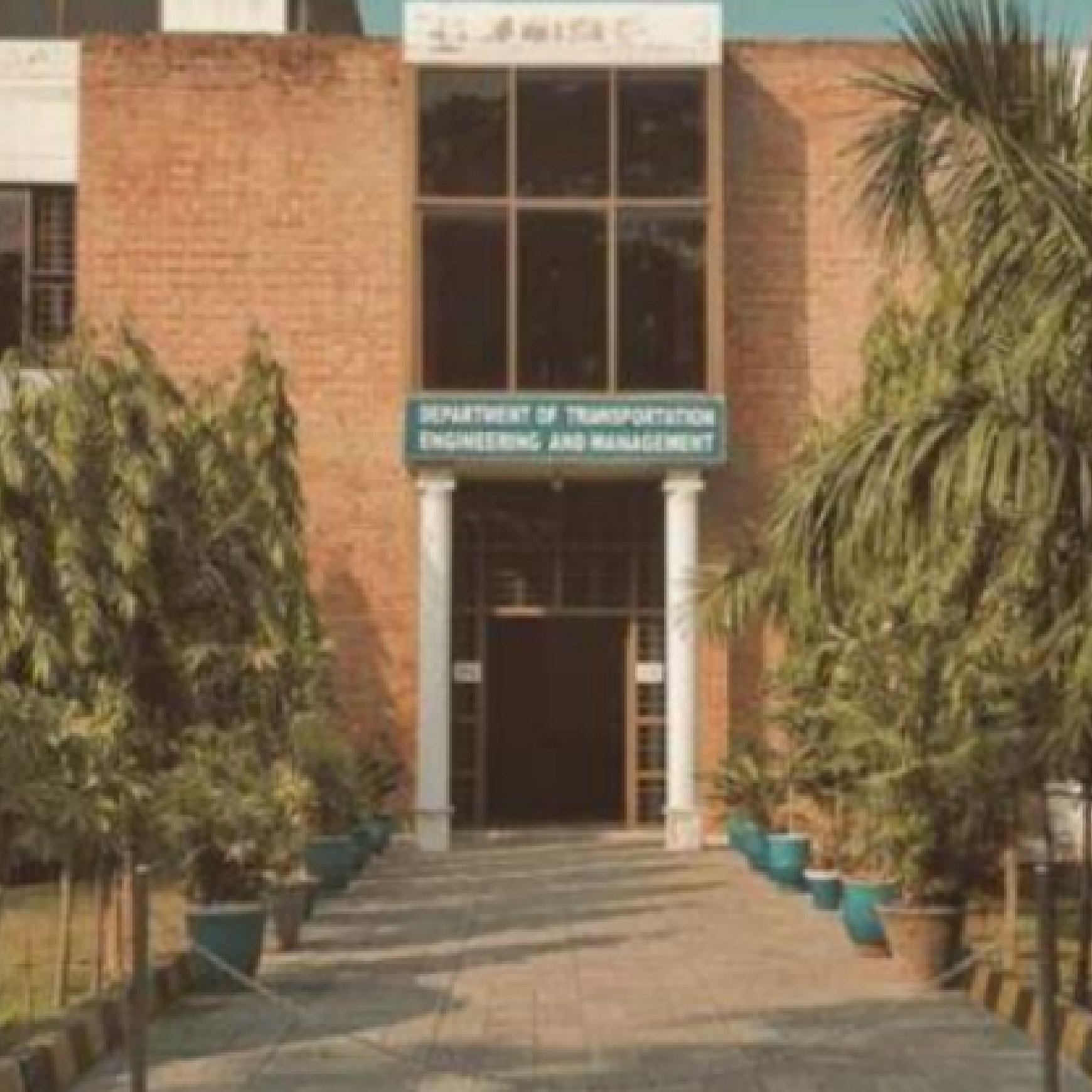
DEPARTMENT OF TRANSPORTATION ENGINEERING & MANAGEMENT
The Department of Transportation Engineering and Management (DTEM) was established under the Faculty of Civil Engineering in 2002. The Department has the distinction of being the first department in Pakistan to offer a formal B.Sc. Degree course in Transportation Engineering. The establishment of this Department aimed to produce transportation engineers capable of planning, designing, constructing, managing, operating, and maintaining various modes of transportation such as highways, railways, airways, seaways, and pipeways. Eighteen sessions (2002-2019) of the DTEM have already graduated.
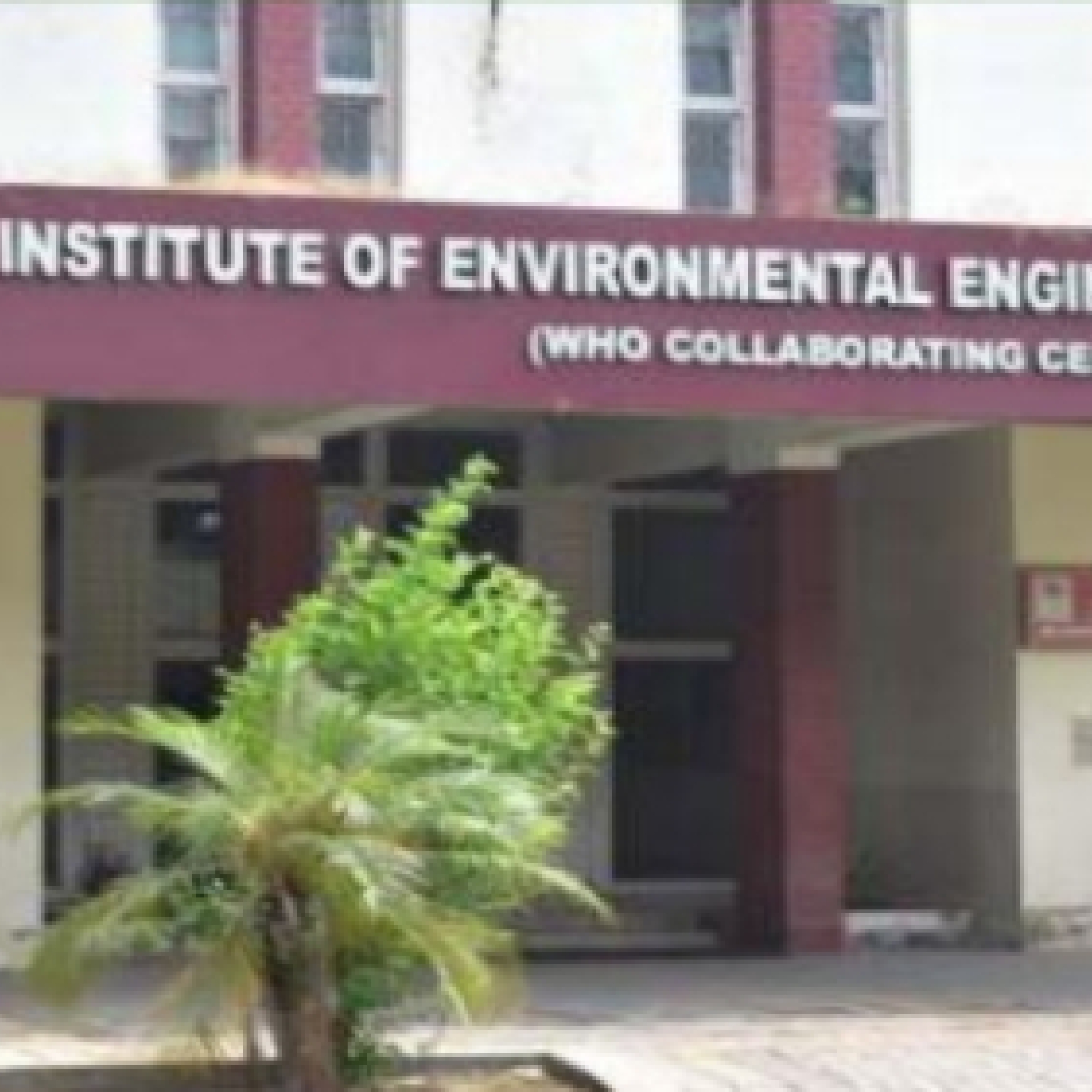
INSTITUTE OF ENVIRONMENTAL ENGINEERING & RESEARCH
The Institute was established in 1972 with the assistance of World Health Organization (WHO). It is the premier educational institute that train professionals in the field of Environmental Engineering. The areas include water supply, sewerage, water and wastewater treatment, solid waste management, air pollution control and environmental studies. Until 2004, its role remained as a post-graduate institute. However, to meet the increasing demand of professionals in the field of environmental engineering, B.Sc. Environmental Engineering degree was initiated in 2005. It is also one of the oldest and most reliable Institute that provides commercial testing services of water, wastewater, and air quality. The Institute remained instrumental in framing National Environmental Quality Standards (NEQS) and National Standards for Drinking Water Quality (NSDWQ). In 2017, it switched to Outcome Based Education (OBE) system. Batches from 2013 and onwards are accredited by Pakistan Engineering Council (PEC) on OBE. B.Sc. Environmental Engineering degree is now recognized by 18 members of Washington Accord including USA, UK, Australia, Canada, Japan, China, and others.
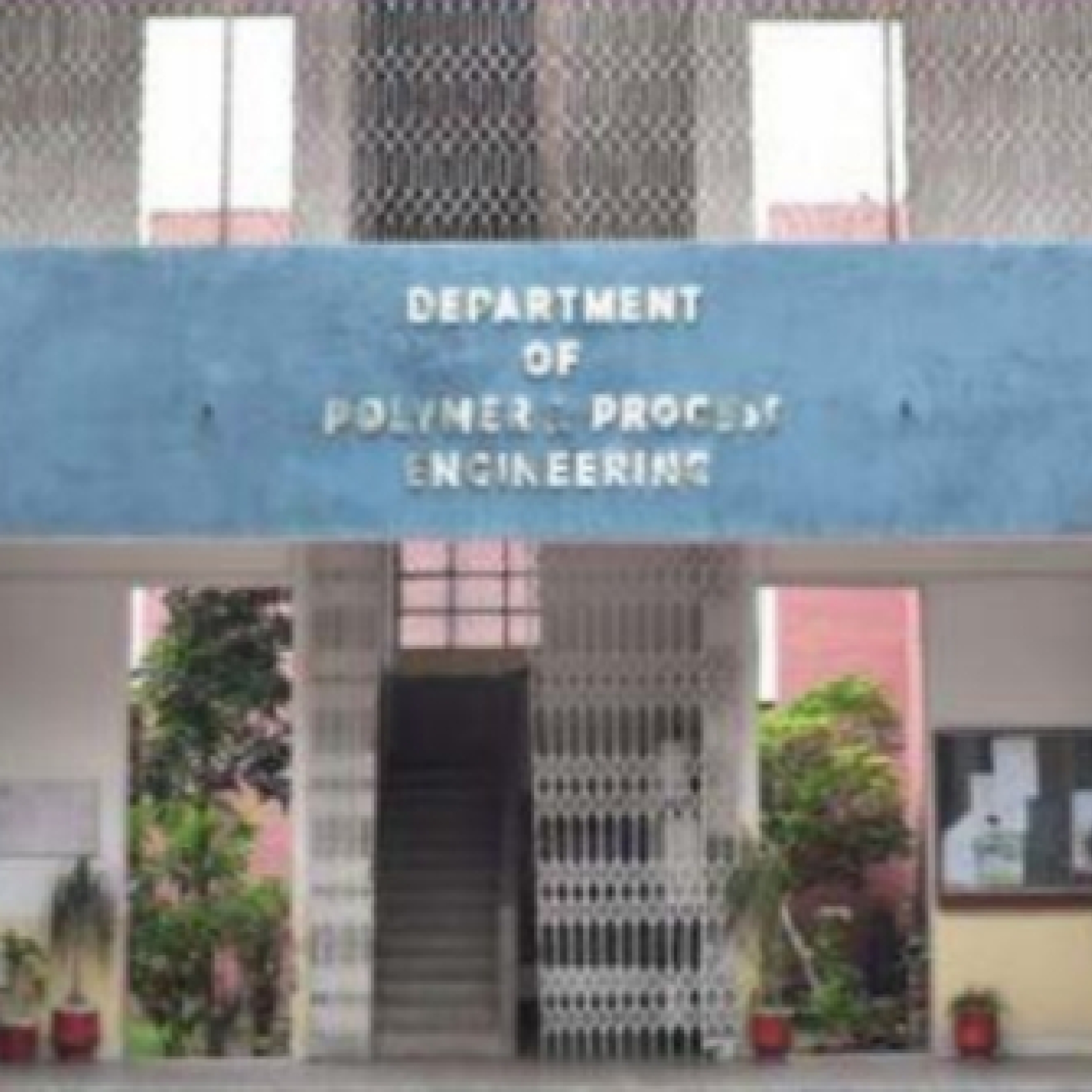
DEPARTMENT OF POLYMER ENGINEERING
Polymer Engineering is an emerging field of research and industrial commercialization, finding a widespread and fast-growing use, ranging from the consumer market to specialized industrial and defence applications. In Pakistan, polymer industry is one of the fastest growing sectors that needs trained manpower and research support. Keeping this in view, the undergraduate degree program in Polymer and Process Engineering was launched in 2002 under Polymer Engineering Division of Department of Chemical Engineering. As a result of a far-reaching ambition, and keen vision which led to the realization of the increasingly important role that Polymer Engineering plays in today’s world, the university decided to upgrade the division into an independent degree awarding department in January 2006. Further to this development, MSc Polymer & Process Engineering was started in 2007 and Ph.D. Polymer Science & Engineering in 2019. The Department of Polymer and Process Engineering has already gained considerable prestige and standing in the academic and industrial worlds due to motivated and outstanding faculty, hardworking and dedicated administration, and state-of-the-art laboratories costing more than Rs.300 Million. Our graduates find jobs industrial sectors of in plastics processing, packaging, paints, composites, rubber and tyres, pipes and profiles, appliances, automotive parts, foams, defence industries.
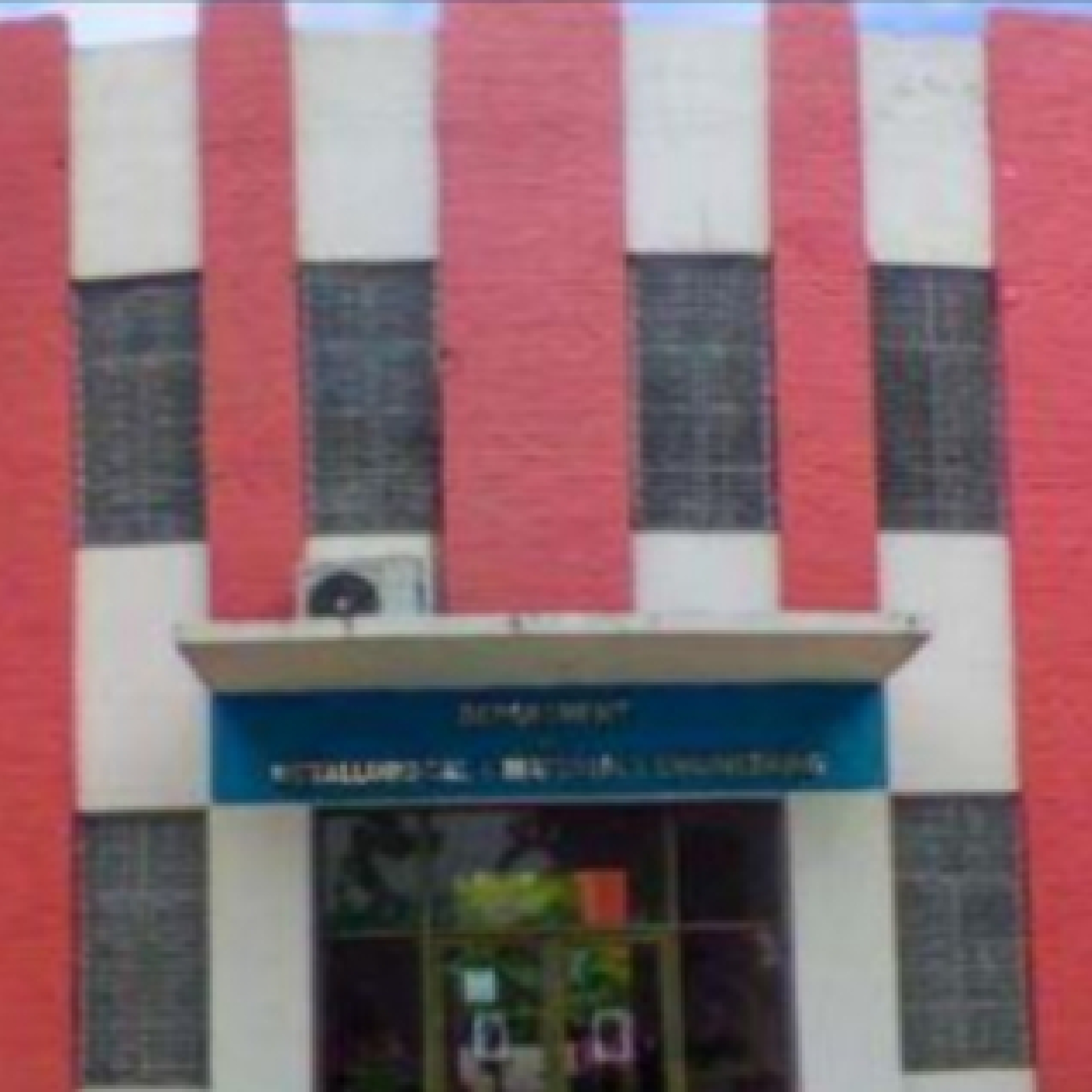
DEPARTMENT OF METALLURGICAL AND MATERIALS ENGINEERING
The department of Metallurgical and Materials Engineering (MME) was established in 1965 and it is the oldest department in this field in the country. Since its inception it has been providing the students with high quality education and training in the field of modern materials. This department has a well-trained, dedicated, and 100% Ph.D. faculty, as well as well-equipped laboratories. The total enrolment of students in the department is around 120.
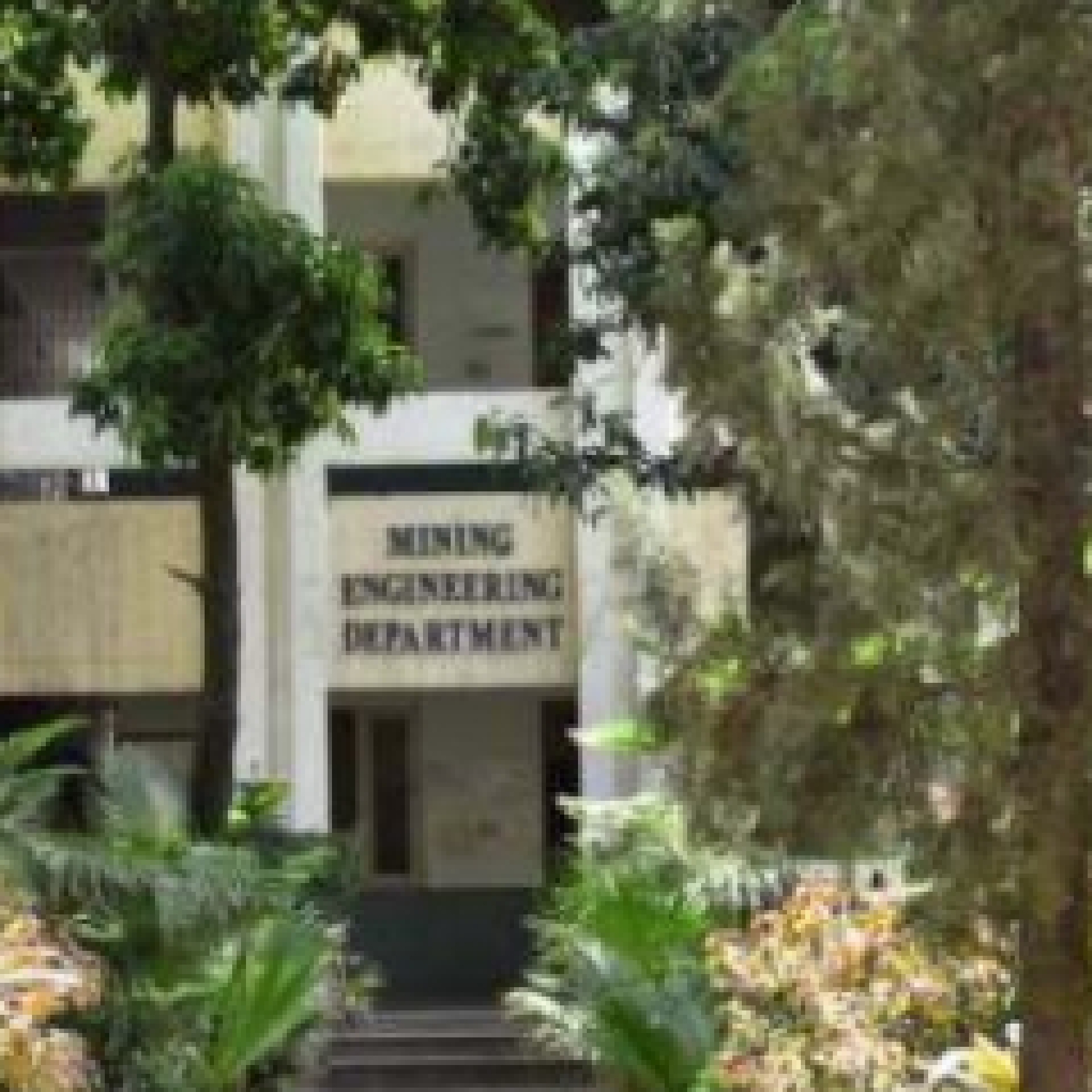
DEPARTMENT OF MINING ENGINEERING
The Department of Mining Engineering was established in 1954 as a part of the Maclagan Engineering College and has the distinction of being the first in the country to offer a formal degree course in Mining Engineering. The Mining Engineering program has the tradition, history and repute of producing quality mining engineers who are serving both nationally and internationally.
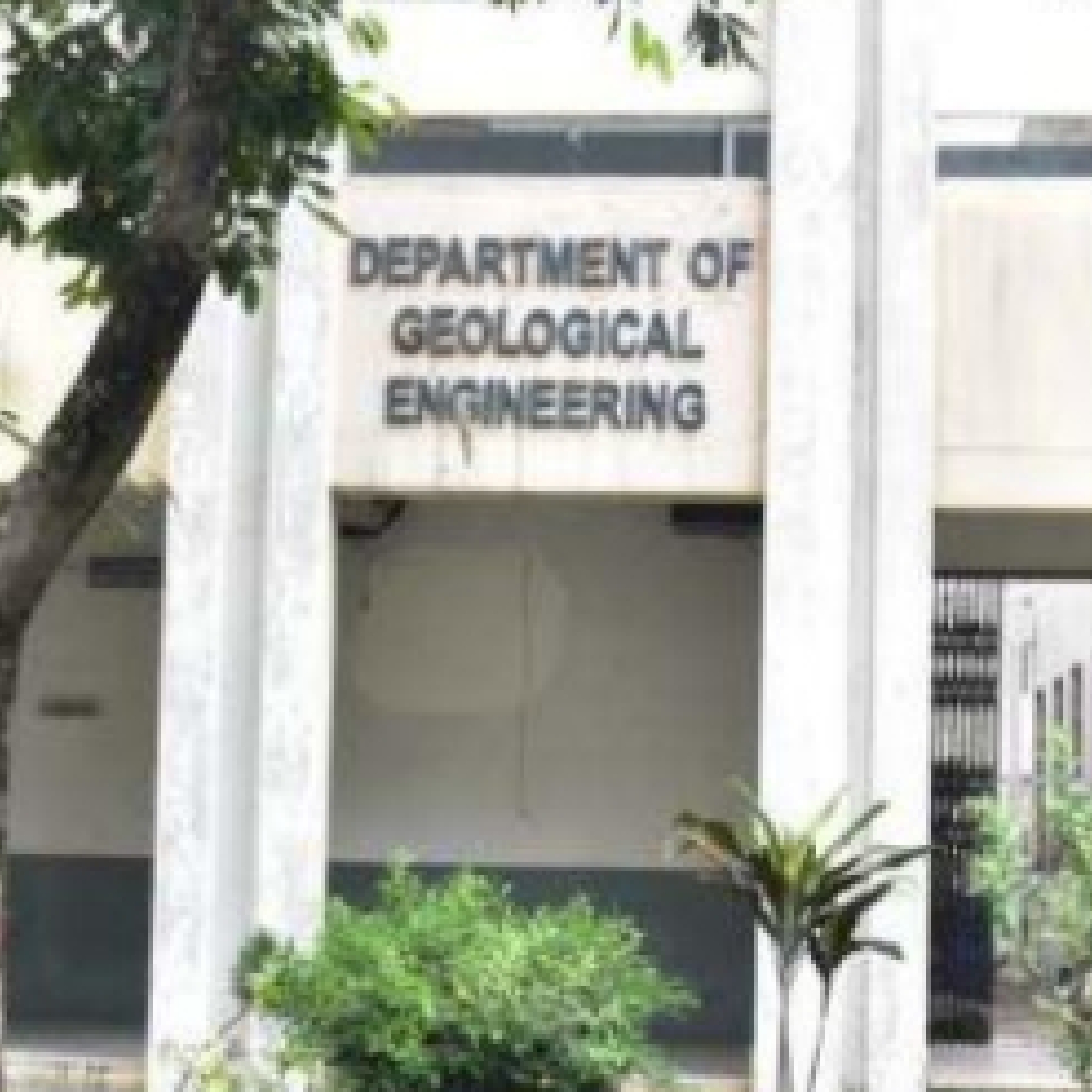
DEPARTMENT OF GEOLOGICAL ENGINEERING
In the 21st century, the most vital challenge faced is the preservation and efficient utilization of Geo-Space and its resources without disturbing the ecological balance. The Geological Engineering degree program aims to come up with engineering solutions that can meet the challenges in the field of geotechnical engineering, rock mechanics and tunneling, natural energy resources exploration and to give solutions to the environmental impact of groundwater resources. The Geological Engineering discipline was introduced in 2001, for the first time in the country by the University of Engineering and Technology, Lahore, under the Mining Engineering Department. In view of the national demand and popularity of the degree program, an independent Department of Geological Engineering was established in January 2006.
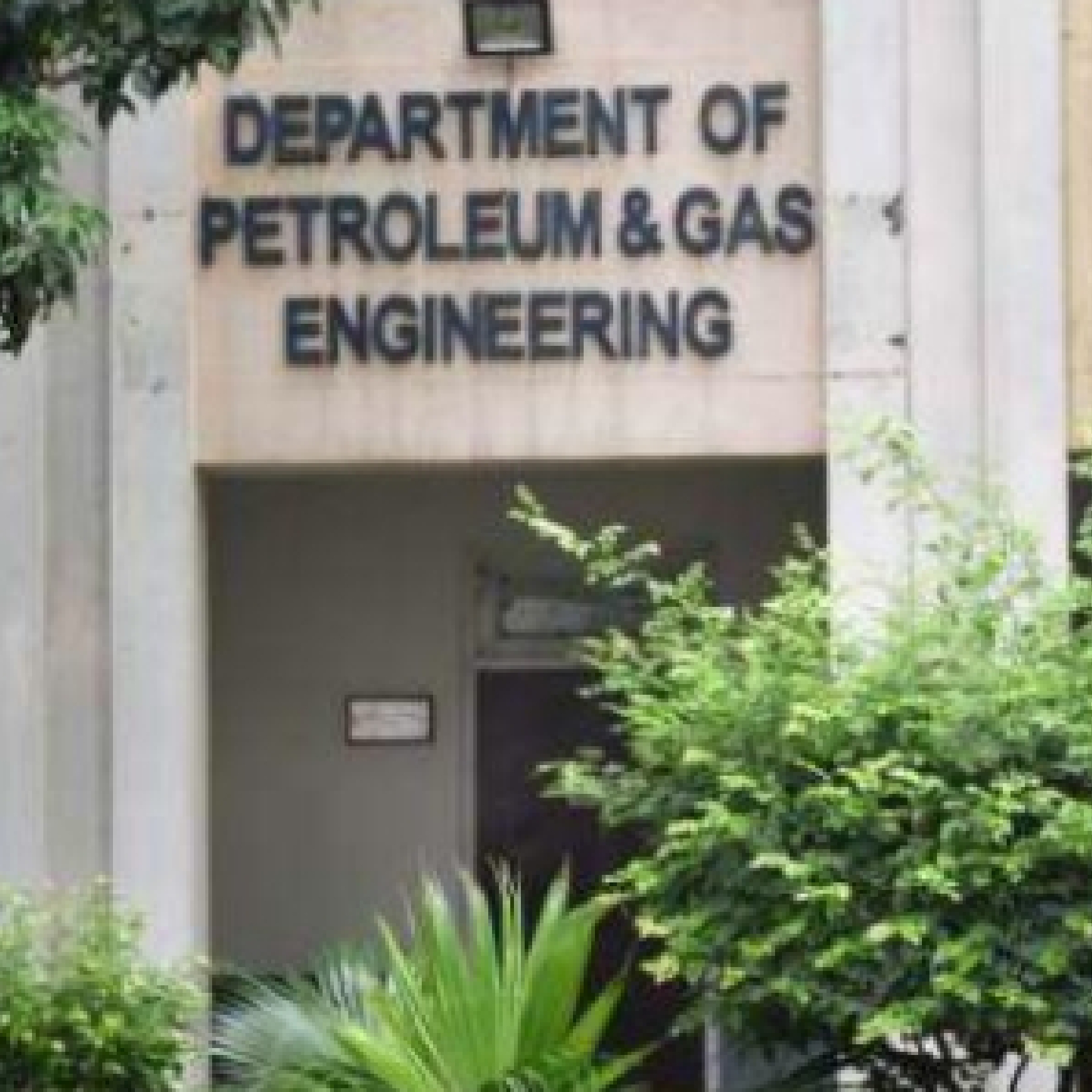
DEPARTMENT OF PETROLEUM & GAS ENGINEERING
The Department of Petroleum & Gas Engineering has the distinction of being the pioneer in the country to offer degree programs in Petroleum & Gas Engineering. It was first instituted in 1969 as a division of Mining Engineering Department. Realizing the importance of the discipline and the department by the national petroleum sector, a full-fledged department of Petroleum & Gas Engineering was established in 1975. The department has been the major contributor towards endowing and establishing the profession of Petroleum Engineering in Pakistan and has always maintained a leading role in petroleum engineering education. It is now almost two decades that the department started the postgraduate programs and has since strengthened its research capabilities over the years. The department offers degree program at Undergraduate and Postgraduate levels in Petroleum & Gas Engineering. During recent years, the Petroleum & Gas Engineering program at UET Lahore has been ranked (51-100) in the world by prestigious QS World University Rankings. This makes the Department of Petroleum & Gas Engineering at UET, Lahore, the first-ever department (of any discipline) in Pakistan to achieve this feat. It is all because of continuous support of university administration, faculty members, industry partners, alumni and students.
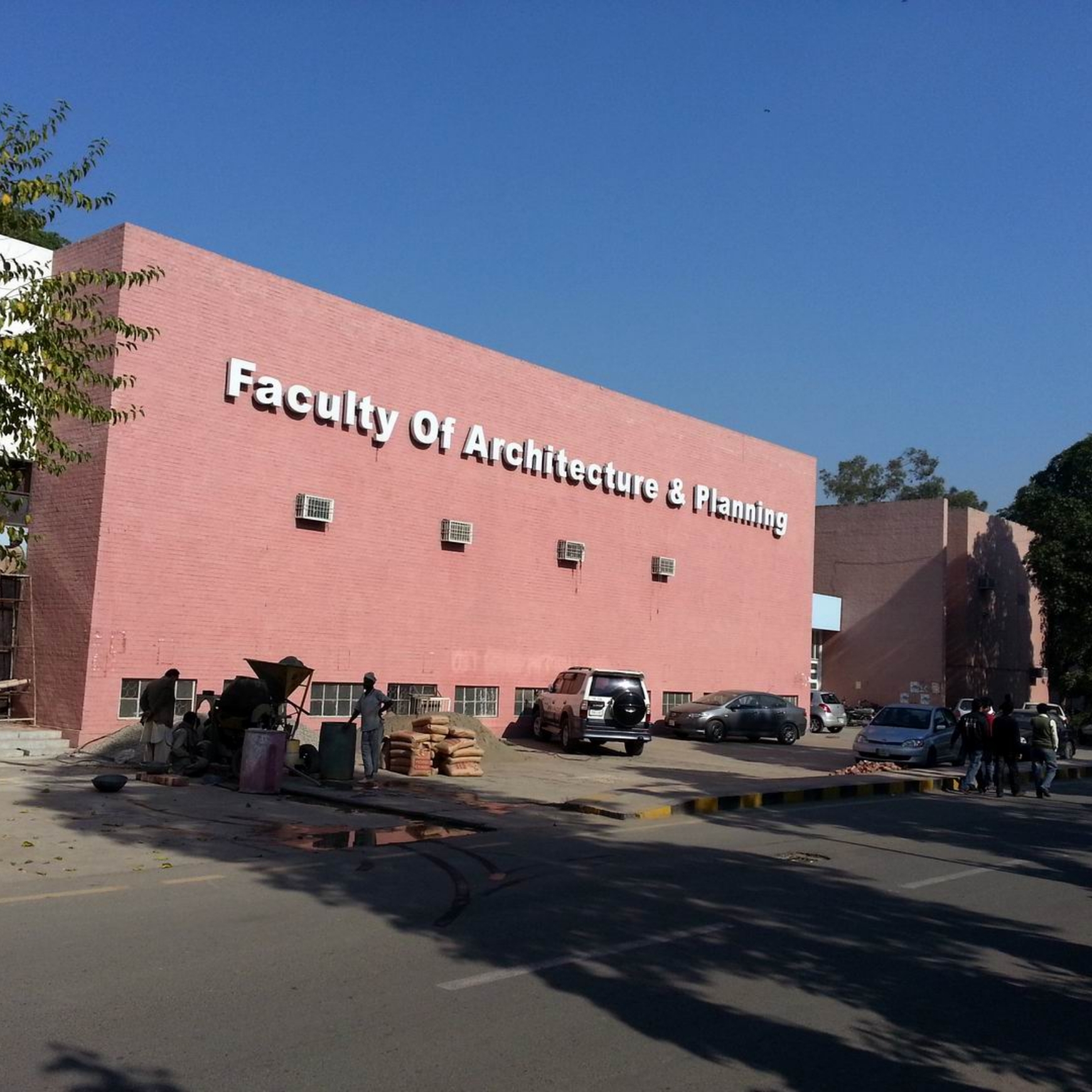
DEPARTMENT OF ARCHITECTURE
The Department of Architecture has a history spanning over 60 years. Established in 1962, it holds the distinction of offering the first-degree program in Architecture in Pakistan. Thus, the Department has been a fundamental contributor to the founding and establishment of the architectural profession in the country. It boasts a large body of alumni with nearly 1,600 graduates, who have played a significant role in shaping much of the current built environment in Pakistan. Over the decades, the Department has developed unmatched expertise in various facets of the architectural profession. Currently, in terms of qualifications and the breadth and depth of its knowledge base, its faculty far surpasses that of any other school or department of architecture in the country. Consequently, the Department has not only maintained its leading role in architectural education but is also poised to further expand its frontiers through the specializations offered in its Master’s and Ph.D. programs.
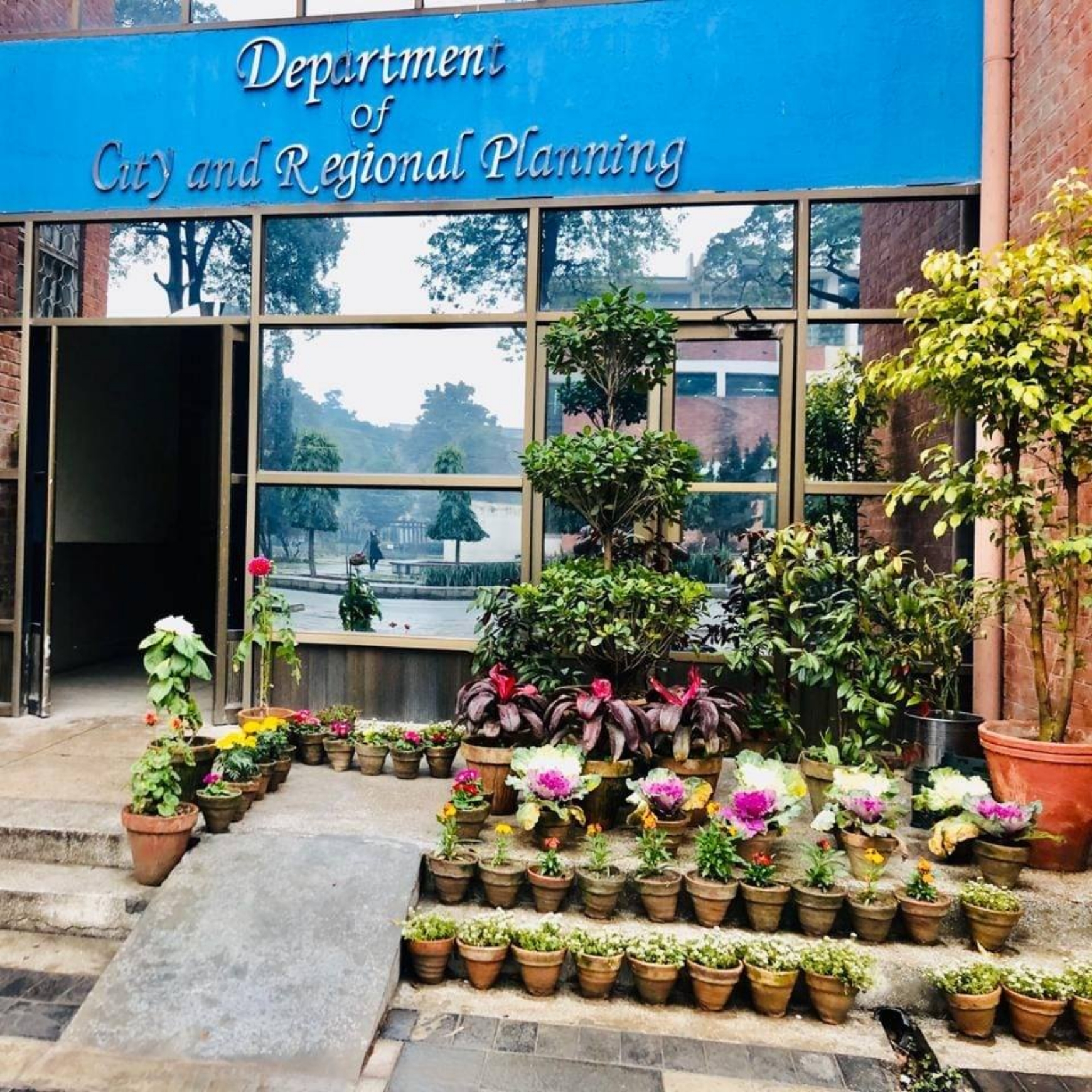
DEPARTMENT OF CITY & REGIONAL PLANNING
The Department of City and Regional Planning (DCRP) has been contributing to nation building through its graduates since 1962. It is an advanced planning institution in Pakistan, offering top quality education. The teaching here focuses on equipping the students with all essential skills to prepare them for higher education and ethical professional practice. The faculty is highly educated with many members holding foreign qualifications. They actively conduct research to find innovative solutions to plan and manage human settlements in a sustainable manner. The Department attracts international students due to its inclusive and vibrant environment. The detail of the department and the faculty can be accessed through university weblink https://crp.uet.edu.pk/.
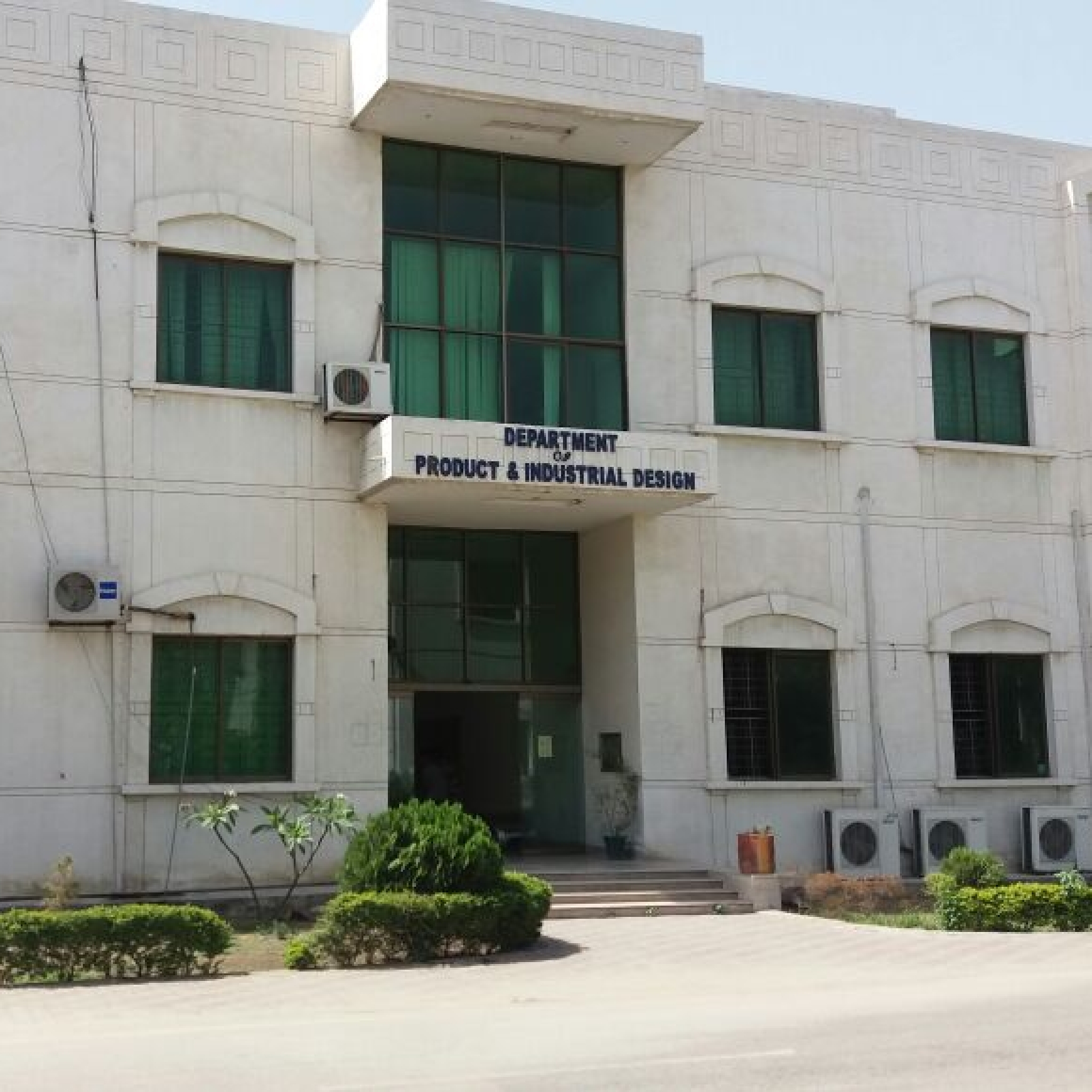
DEPARTMENT OF PRODUCT AND INDUSTRIAL DESIGN
The Department of Product & Industrial Design was established in the year of 2006 with the aim of generating professionals in the field of Product Design with technological, managerial, and entrepreneurial skills for the emerging needs of the industry. The department provides standard Product Design education at the bachelor level and commenced postgraduate program in the year 2016. The offered courses equip students with skills and knowledge necessary not only for industrial designing but also for the students who can pursue various choices of career after graduation; the graduates will be industrial / product designers, design managers, entrepreneurial, designers for product manufacturers, and trading companies' product design consultancies. Broadly speaking, the role of the product designer combines art, science, and technology to create tangible three-dimensional goods. Master Program in Product and Industrial Design involves the research and design of the whole range of consumer and capital products. These are as diverse as telephones and transportation, kitchen appliances exhibition systems. Ideally, the industrial designer works as part of a multidisciplinary team involving engineering, production, and marketing.

DEPARTMENT OF CHEMISTRY
The history of Department of Chemistry is as old as 1923. It was known as “Science Department” in the days of Maclagan Engineering College Lahore, which offered the subjects of Chemistry, Physics and Mathematics to Engineering disciplines. However, an independent Department of Chemistry was established in 1961, when Maclagan College of Engineering was upgraded to University, presently University of Engineering and Technology, Lahore. It was a supporting department for teaching applied chemistry courses to engineering disciplines until 1994. The Department started M.Sc. Applied Chemistry program in 1995. While the M.Phil. program in Chemistry was started in 2001. The Ph.D. program was started in 2004. In 2020, BS Chemistry program started with almost 35 in first intake. There are several well-equipped laboratories having a number of modern instruments like UV-Visible Spectrophotometer, FTIR, Atomic Absorption Spectrophotometer, GC-FID, GC-FPD, GC-MS, HPLC-UV, High Temperature Furnaces, Polarimeters, Potentiometer, EDAC, Incubator Shaker, High Speed Control Centrifuge, Low Temperature Incubators Vacuum Pumps, Kjehldahl Apparatus, Soxhlet Apparatus, Schilink Lines, some Electrochemical Instruments, Fluorescence Spectrophotometer (cary eclipse),ATR (cary 630 FTIR), Refractometer (Abbemat 500), Polarimeter (MCP 500), Potentiostat, Ultra-Low Temperature Freezer (U360 Innova), Thermo Scientific Barnstead Smart 2 Pure water (2 No.), Eliza Reader Laminar Flow Hoods, Cool Incubators, Dry Incubators, Oven, Freezer, Orbital Shaker, Spectrophotometer, Antibacterial and Antifungal facility, Colony Counter etc. In addition, there is a well-stocked Library and I.T, Computer Laboratory to facilitate the students.
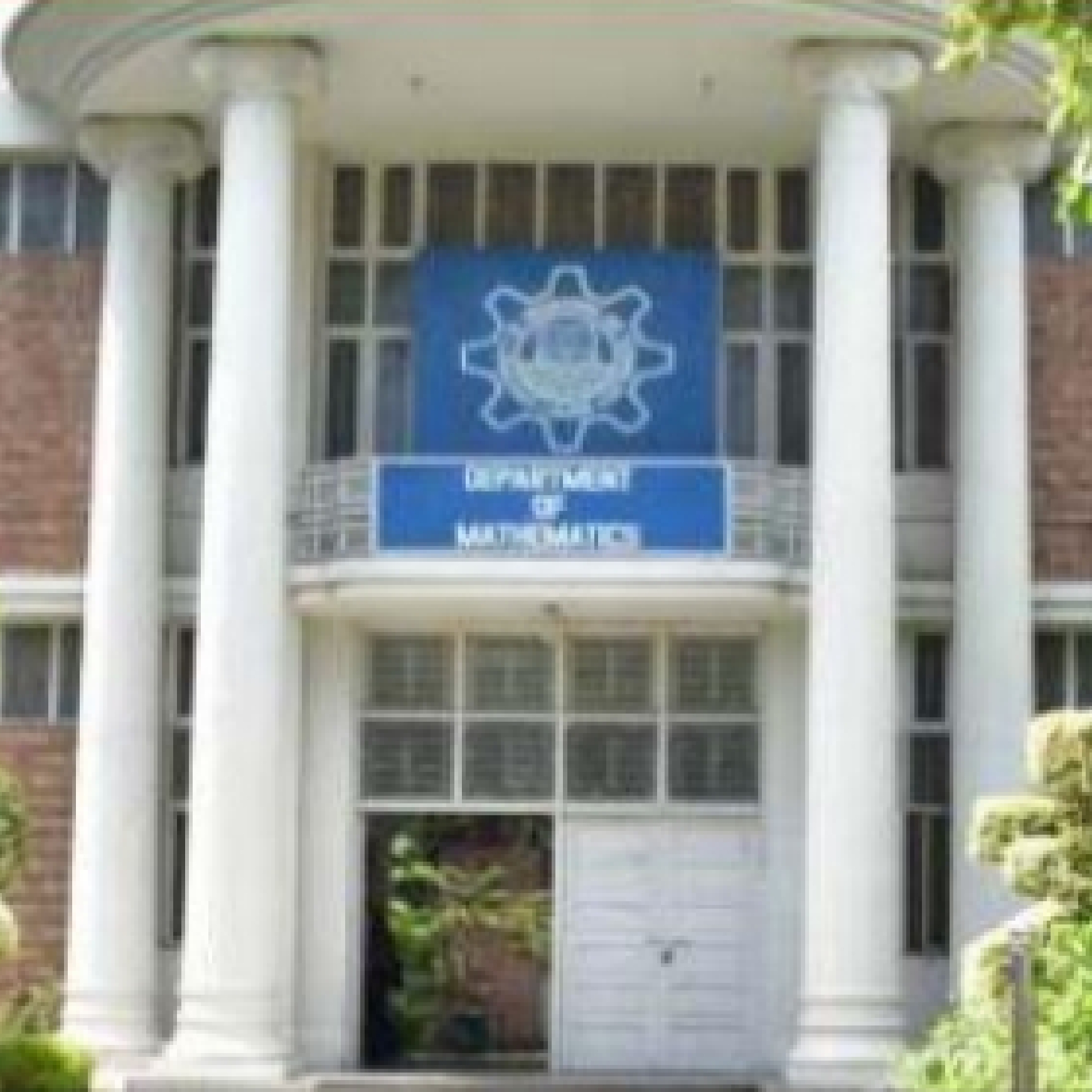
DEPARTMENT OF MATHEMATICS
The Department of Mathematics is one of the oldest departments of the University of Engineering and Technology, Lahore. It was established in 1961. The Department of Mathematics not only runs its own programs like BS in Mathematics, M. Phil in Applied Mathematics and Ph.D. in Mathematics, but also provides its services to all disciplines of engineering and technology, and business to make their students capable enough to apply the tools of Mathematics for solving the problems occurring in their respective areas of study.
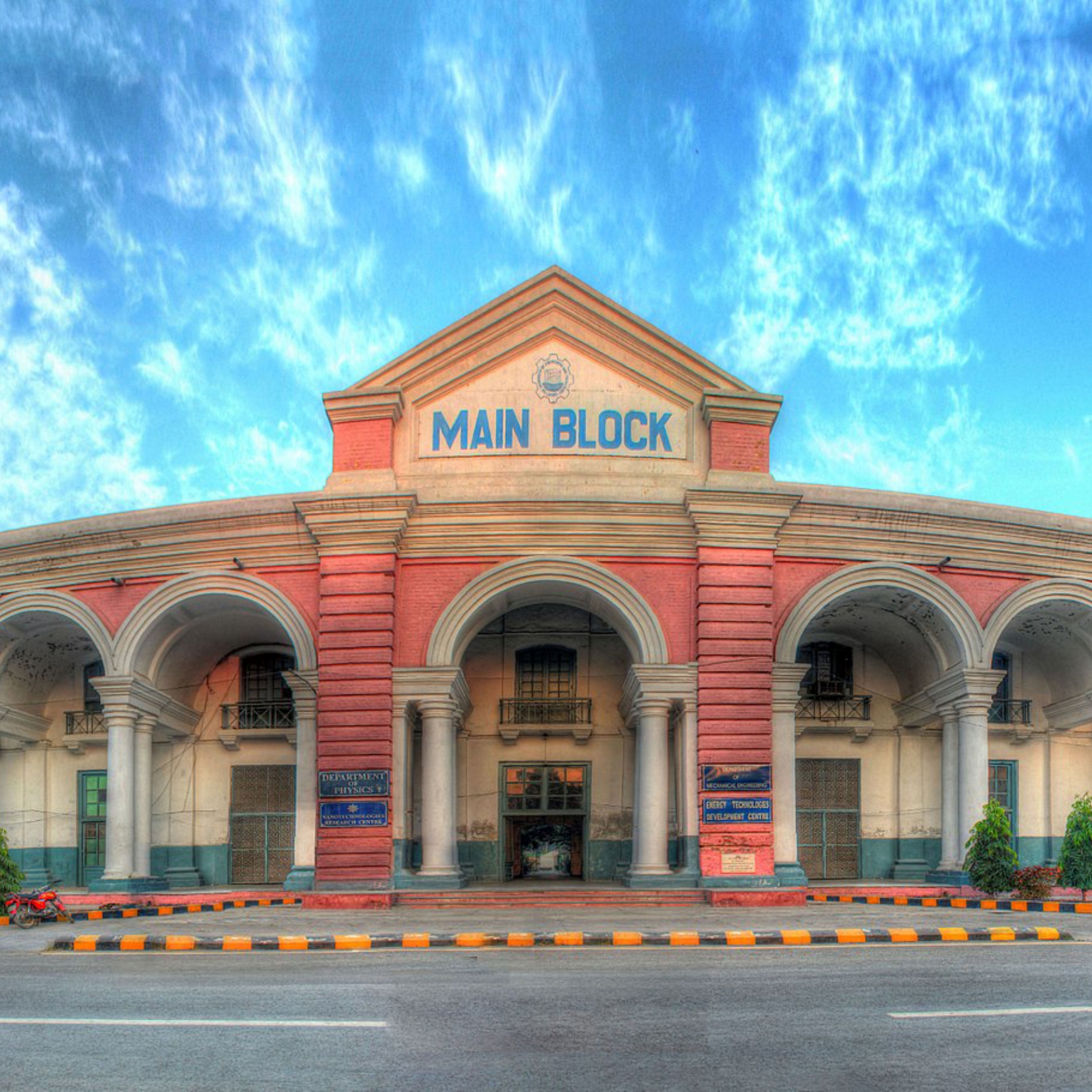
DEPARTMENT OF PHYSICS
The faculty is highly qualified and motivated including twenty (20) members with Ph.D. degrees. The interdisciplinary curriculum draws on faculty expertise in many areas of Applied Physics and includes such courses as Laser Physics, Plasma Physics, Nanotechnology, Health & Medical Physics, Photonics & Optoelectronics, Applied Optics, Applied Atomic & Nuclear Physics, Solid State Physics, Electronics, Computer Science and its applications, etc.The Department has produced 592 M.Phil. and 466 M.Sc. students so far, who are serving in different educational institutes like Lahore College for Women University, G.C. University, Lahore, F.C. College University, PIEAS, etc. R & D Organizations like PAEC, NESCOM, OPTICS Lab. KANUPP etc. and in the field of Medical Physics in Shaukat Khanum Hospital, INMOL, Jinah Hospital, Mayo Hospital, Children Hospital etc. The Department has also produced 32 Ph.D. and 34 are pursuing their Ph. D degrees. There are seven well equipped Laboratories in the Department. The Research work is backed up by the state-of-the-art equipment where students have the opportunity to perform experiments of advanced level with the special emphasis on the applied concepts of Physics. The B.S. Physics program was started in 2020. The students enrolled in Sessions 2020, 2021,2022 & 2023 are pursuing their BS Physics degree following the latest HEC criteria.
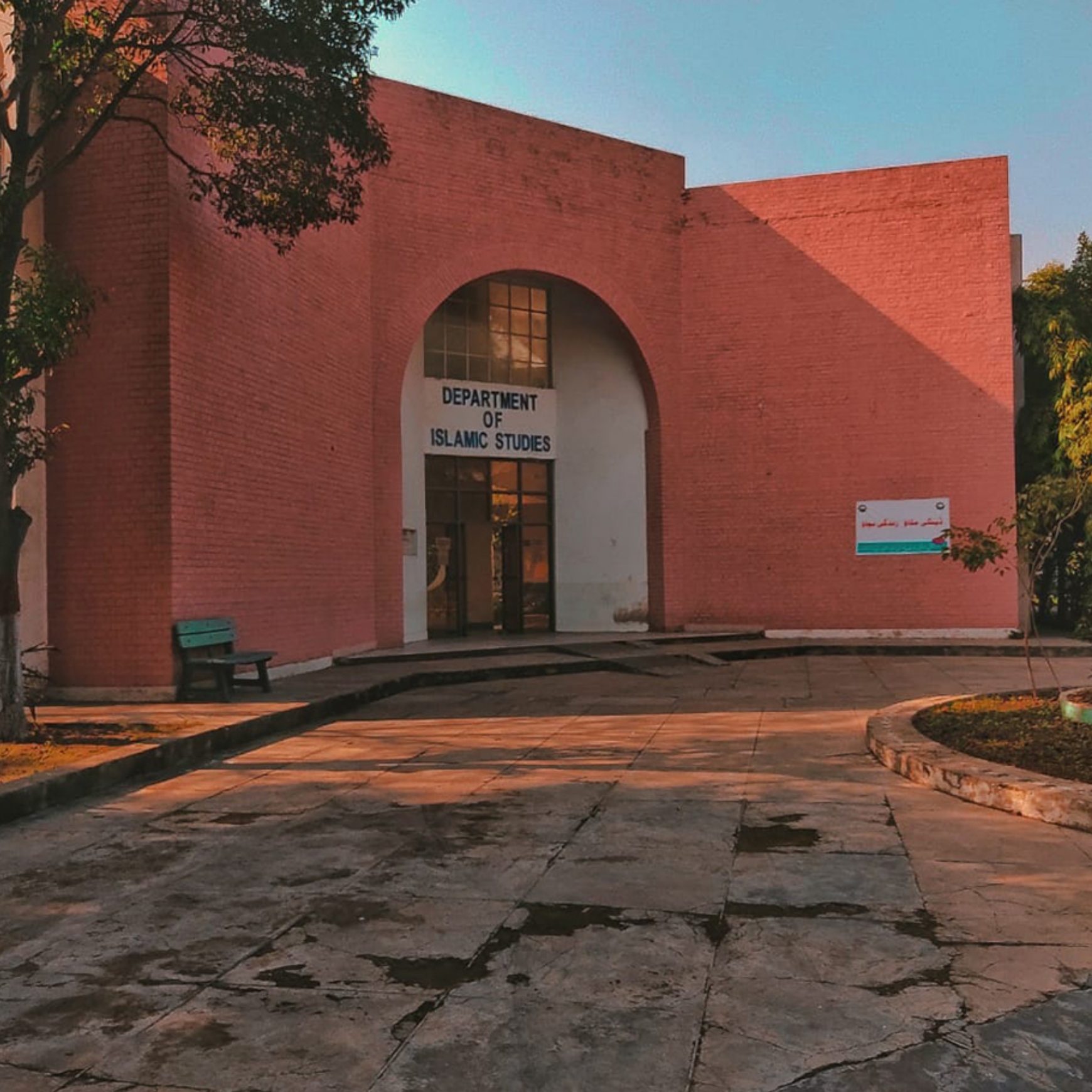
DEPARTMENT OF ISLAMIC STUDIES
The curricula in the University include compulsory and optional subjects. Islamic & Pakistan studies are included in the compulsory subjects. The underlying purpose of teaching this subject to the students of engineering disciplines is to impress upon them the richness of Islamic culture, heritage and civilization and the role played by Islamic ideology in guiding the Muslims of the sub-continent towards their most cherished goal of an independent home land, Pakistan. After inculcating in them the Cultural, Social, Economic, Political and historical aspects of Islamic civilization, the students would be able to protect and promote Islam, not only as a religion but as a system in Pakistan and in the world as well. For the realization of these objectives, the Islamic Studies was introduced in the University as an optional subject in 1961. In the subsequent years, due to its importance this subject was made compulsory for all the Muslim students and its scope was progressively enlarged. Now the Department teaches Islamic Studies to all undergraduate programs. In 1982 the Government of Pakistan prescribed Pakistan Studies as an essential component of the syllabi at all levels of education. Since then the Department is teaching this subject also. The University welcomed the idea of the Governor of Punjab to teach Qur'anic translation to the students of bachelor's degree programs. So the subject "Translation of the Holy Qur'an", one credit hour course per year, is being taught to the undergraduate students since 2020. The Department has a computer lab and a library rich with high quality research books. In addition to all these activities, some faculty members of the Department have been delivering Friday Sermon in Jamia Mosque UET.
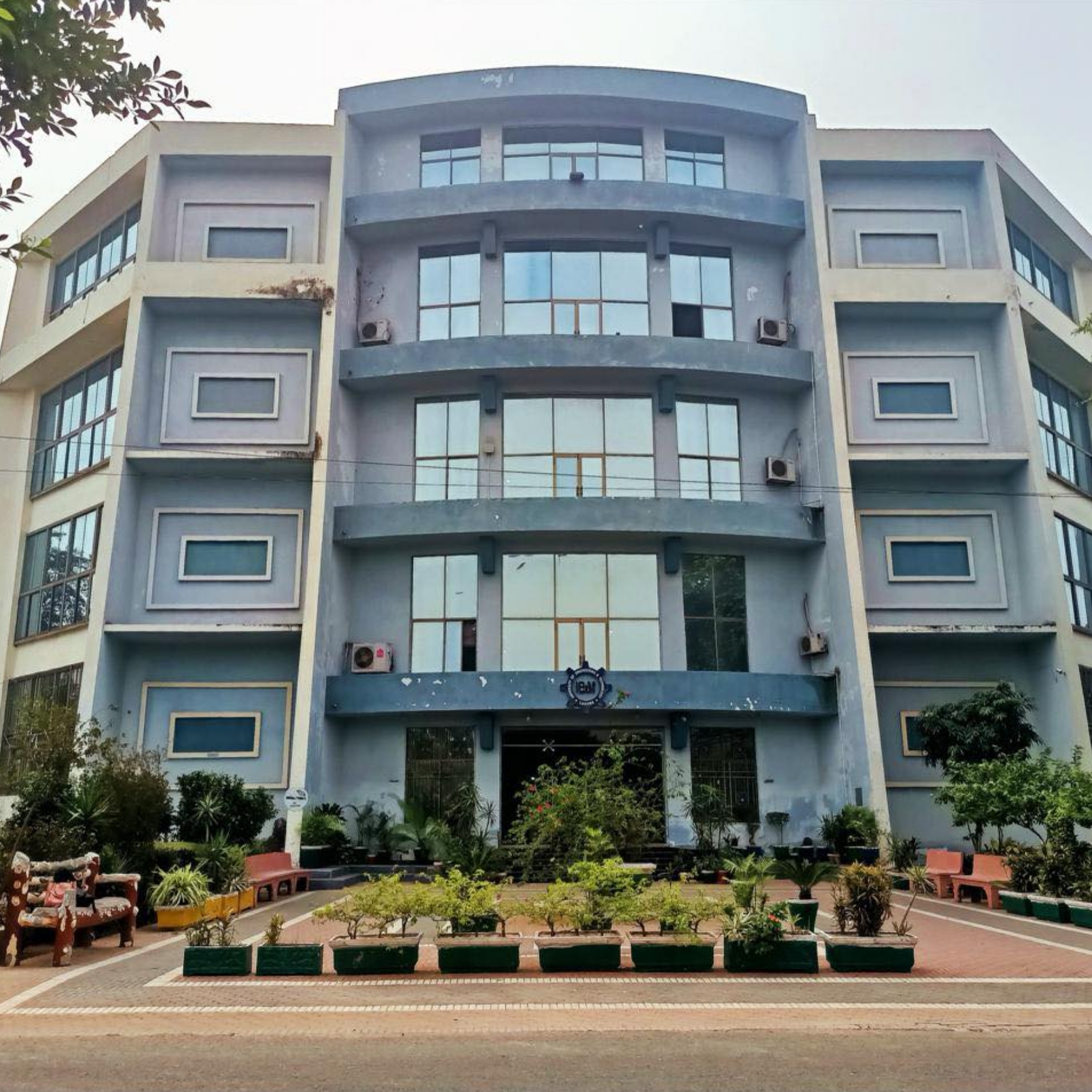
INSTITUTE OF BUSINESS AND MANAGEMENT
IB&M was established in 2009 to facilitate a community of responsible citizens and aspiring management professionals who can inspire the business landscape through their creativity, integrity, and commitment to excellence and sustainability. The Institute leverages UET’s 100 years of academic excellence in innovation, professional expertise, and industry-oriented education. IB&M provides a combination of a robust curriculum, highly qualified faculty with remarkable research contributions, well-equipped business school premises, and a myriad of student support services that synergize into a memorable and rewarding learning experience.

